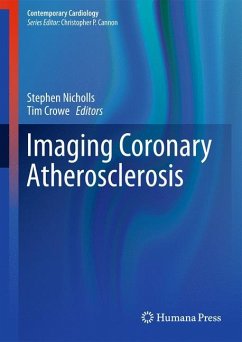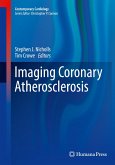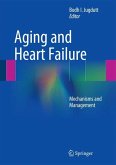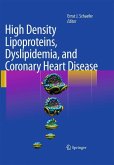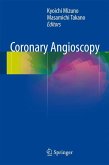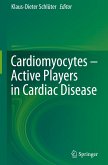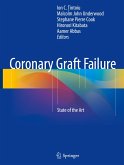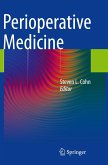For over 50 years, coronary angiography has been the mainstay of diagnosing and quantifying the extent of coronary artery disease. However appreciation of the inherent limitations of conventional angiography has led to a plethora of new imaging modalities, each with their relative strengths and potential pitfalls. Advances in these techniques have given clinicians, as well as researchers, an overwhelming amount of information and the need for thoughtful interpretation.
This outstanding book provides a comprehensive overview of the current status of imaging of coronary atherosclerosis. Covering the wide variety of available imaging modalities, the book provides state-of-the-art knowledge from leading authorities in each area. In their discussion, the authors include both invasive and non-invasive modalities, including the gold standard coronary angiography, the growing field of IVUS, and novel techniques such as functional imaging, molecular imaging, and the integrationof biomarkers.
The key concepts and practical information given in this volume will provide the reader with the necessary understanding to choosing appropriate imaging studies and building confidence in their skill set with each.
This outstanding book provides a comprehensive overview of the current status of imaging of coronary atherosclerosis. Covering the wide variety of available imaging modalities, the book provides state-of-the-art knowledge from leading authorities in each area. In their discussion, the authors include both invasive and non-invasive modalities, including the gold standard coronary angiography, the growing field of IVUS, and novel techniques such as functional imaging, molecular imaging, and the integrationof biomarkers.
The key concepts and practical information given in this volume will provide the reader with the necessary understanding to choosing appropriate imaging studies and building confidence in their skill set with each.
From the book reviews:
"This book reviews the advances in coronary imaging, succinctly describing the roles of old and new technology. The purpose is to assist physicians in the evaluation and management of patients with coronary artery disease. The book meets the objectives using an evidence-based approach. The book is written for practitioners. It would be very useful in the hands of a cardiovascular physician." (Bruce Wilson, Doody's Book Reviews, October, 2014)
"This book reviews the advances in coronary imaging, succinctly describing the roles of old and new technology. The purpose is to assist physicians in the evaluation and management of patients with coronary artery disease. The book meets the objectives using an evidence-based approach. The book is written for practitioners. It would be very useful in the hands of a cardiovascular physician." (Bruce Wilson, Doody's Book Reviews, October, 2014)

